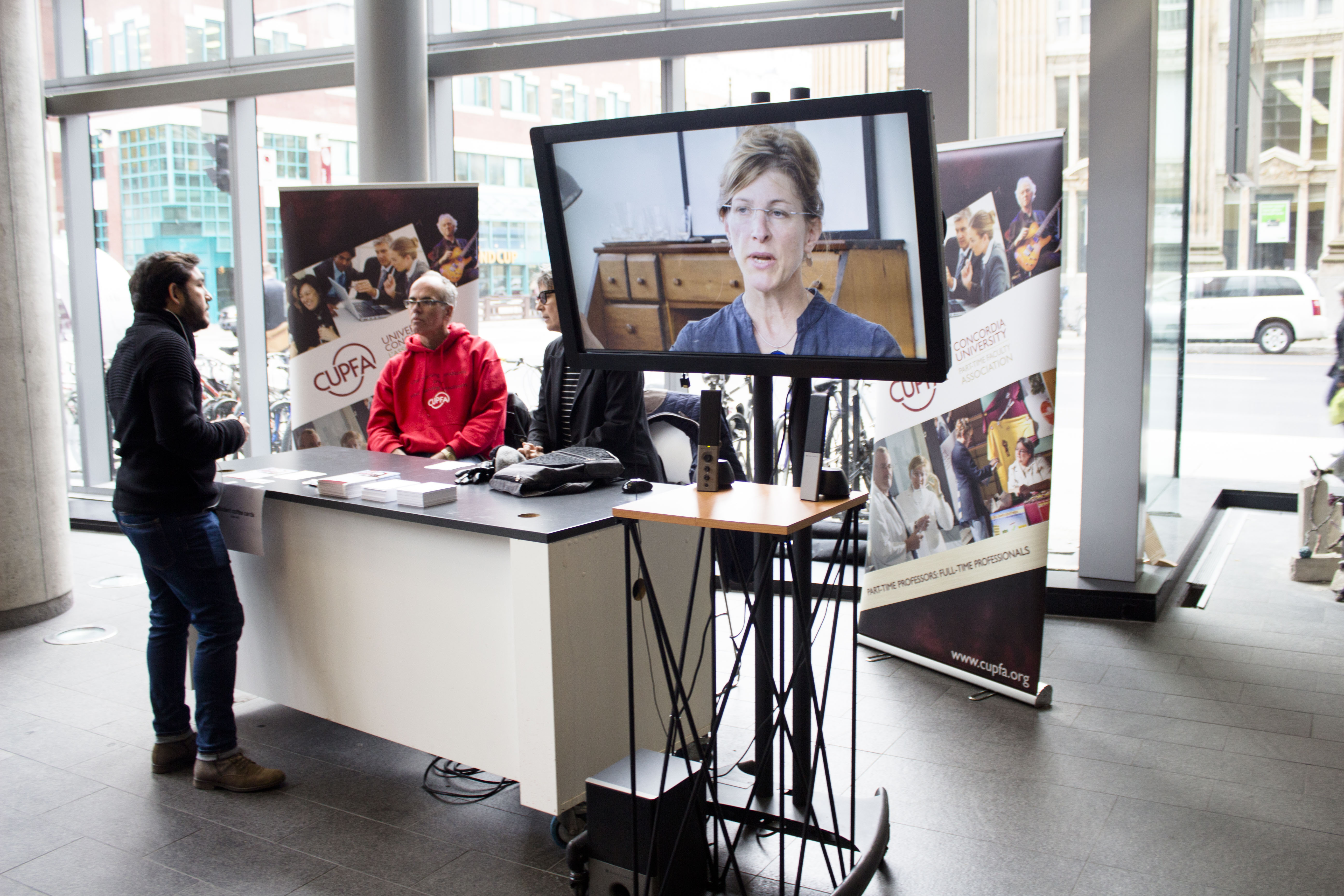Concordia’s part-time faculty association invites students to learn about their cause
The Concordia University Part-time Faculty Association (CUPFA) just launched this year’s Campus Equity Week, which will be going on from Oct. 24 to 27, to shed some light on the unequal treatment of the university’s part-time faculty.
Lorraine Oades, the association’s vice president of professional development, said this week is about acknowledging part-time faculty members and the value they bring to the university. CUPFA is asking the university to allow part-time faculty to be paid for doing supervisory and administrative work at Concordia, in addition to their teaching duties.
“We want to create a system that is fair for this part of the faculty,” said Oades. “We are not asking for a huge amount of money, we just want to fill in some gaps.”
Oades, a part-time studio arts professor, is deeply concerned with the work of part-time faculty members that goes unacknowledged and unpaid for. “For example, students will ask us if we can supervise independent studies,” she explained. “We will say most of the time no because this is a full-time faculty job which is a reason [full-time professors] get a higher pay.” She added, however, that there are some part-time professors who agree to offer this help to students but are not rewarded for it.
In past years, Campus Equity Week was only a low-key, one-day event. This year, however, CUPFA is setting up a kiosk for four days, rotating in different buildings on the Sir George Williams campus. To promote the event, the association released a few video profiles created by part-time faculty member, Monique Moumblow, to showcase the hard work of these teachers. “This is the first year that everything falls into place,” said Oades.
Another issue CUPFA will be sharing with students during the eventful week is their concern with limited-term appointments (LTAs). Professors with LTAs are limited to teaching 18 to 21 credits per year. “The LTAs replace the full-time faculty but they don’t know the students as well,” said Oades. “It is very difficult for them, for example, to write a quality letter of reference if they know very little of the students.”
CUPFA’s voice is gaining strength, and members will continue negotiating with the university for their demands after Campus Equity Week. According to Oades, many full-time teachers already support the cause, and some deans are also very enthusiastic about it. “It’s the upper administration that needs to be convinced, and that’s what we’re trying to do with this campaign,” Oades said.
CUPFA’s kiosk is currently set up in the EV building. They will also be present on Tuesday in the Hall building, Wednesday in the MB building and Thursday in the VA building, between 10 a.m. and 6 p.m. Students and staff can speak with members of the association, get a free coffee card and pick up a flyer for more information on CUPFA.
Note: Two changes have been made to this article after publication to ensure accuracy of the information. The Concordian regrets the errors.
